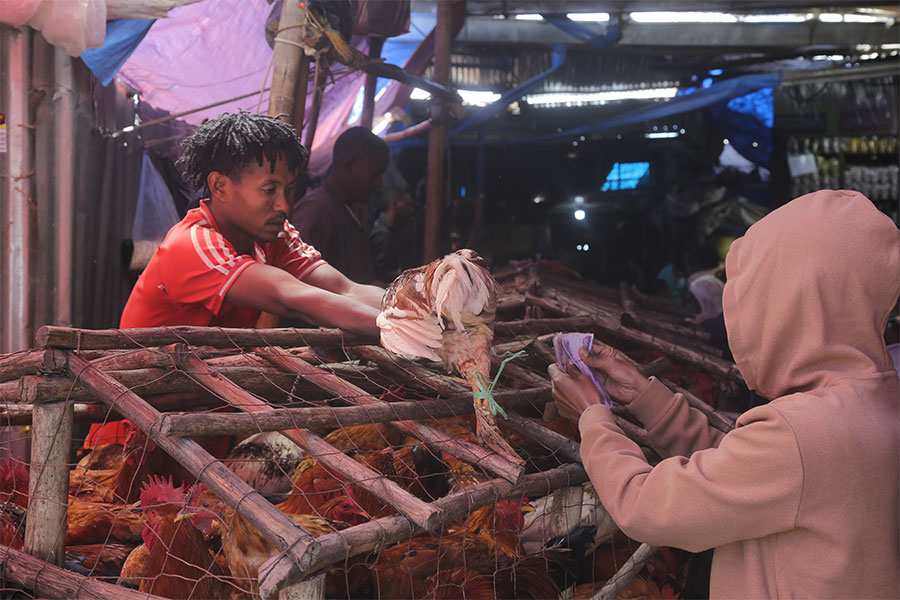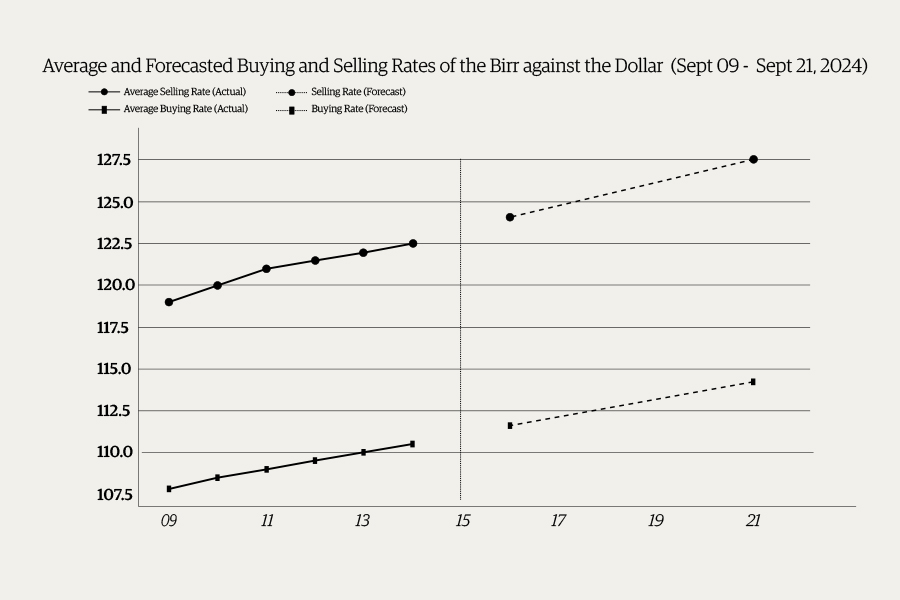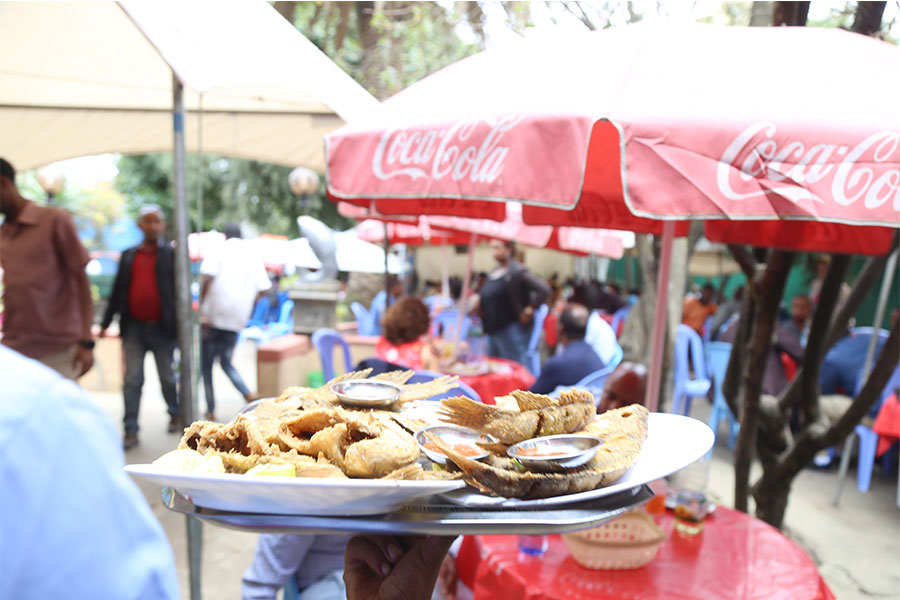
For Serkalem Tekalign, a 45-year-old mother of four, holiday means a day when all the family members get together and enjoy a reunion.
The reunion is accompanied by special holiday feasts of traditional meals and brews prepared specially for the feast.
Easter holiday particularly holds a special place for Ethiopians, as it marks the end of the 55-day fasting period where the faithful of the Ethiopian Orthodox Church refrain from animal products and alcohol.
The meals are prepared way ahead of time, the beverages brewed and the homestead cleaned before the arrival of the guests on the day of the feast.
Tej, a honey mead, is a main holiday drink that is brewed at home in advance of the holiday.
Historians assert Ethiopians have been consuming Tejfor the past two millennia, and it is referred to as the national drink of Ethiopians and Eritreans.
Wild yeast, twigs and leaves of Gesho, hops plant, and honey are used in the making of the mead, which may take up to 20 days for the fermentation process to complete.
Some families with busy lives purchase the Tejfrom local brewers. One kilogram of honey is mixed with three litres of water to start the process with Geshobeing added to the mixture. The mixture is kept air tight in a dark room at room temperature.
After the first stage of fermentation is achieved, the Gesholeaves and twigs are removed from the mead by filtering. The brew is still kept in the dark room for several days, with continual stirring and mixing. Any additional Gesholeft in the brew is removed and the fermentation process is allowed to continue for several more days.
When the Tej has fermented to the liking of the brewer, the mixture is screened over a cheesecloth to remove all the sediment and any leftover Gesho.
Tej, or honey mead, the honey-sweetened hops (Gesho) concoction stands at the very apex of the revelries-lightly intoxicating and soothing everyone with sweet potions.
The sweetness and alcohol content of Tejdepends upon how long the brewer lets it ferment. The longer the fermentation process, more of the sugar in the honey will ferment into alcohol.
On the afternoon of April 22, 2019, Serkalem went shopping for Tej. She found herself in one of the booths set up for the holidays by small and medium enterprises at Menelik Square, Arada District.
"My two sons enjoy Tejas it has a sweet taste, and it is easier to drink than the other spirits," Serkalem said.
Tejis traditionally served in a rounded vase-shaped glass called a Berleand has a deceptively sweet taste.
Serkalem paid 160 Br for two litres ofTej.
Many businesses and individuals cater and sell the Tejto customers including Serkalem. Yenenesh Kebede, a businessperson who is in her mid-40s, is also one of them.
Yenenesh has been in the business of Tej-making for the past seven years. Initially, she was brewing it at home and was selling it to her relatives and a few other customers.
Then she joined a company that makes and retails Tej, Muluken Honey Tej Enterprise. The Enterprise sells the drink throughout the year, but the demand increases during holidays, according to her.
Muluken Honey Tej Enterprise has three retail outlets in Kasanchis, Aware and Torhailoch.
Tejhas a shelf life of one year, but the taste and the colour can change and become stronger as the fermentation continues.
A producer makes Tej out of honey near National Stadium.
There are three types of Tej: Birz Tej(light); DerekTej(dry); and Defresor MekakelegnaTej(medium). The three classifications are made based on the amount of Geshoused, the level of filtration and its alcohol content.
The lighter Birzis brewed without Gesho. It is sweet, has less-alcohol content and is aged for a shorter time. It is made with a mixture of honey and water and is allowed to ferment, very lightly, on its own for a few days before it is consumed. It can be prepared in three days.
DerekTejis stronger, made with Gesholeaf, fermented for the maximum time and has a bitter taste. Defrisor MekakelegnaTej, “mediumTej,” is known for its sweetness and is the most popular.
Apart from their outlets, Yenenesh sells the product at exhibitions during holidays. The exhibitors offer their products in different sizes. The retailers sell a litre of Tej at an average price of 85 Br.
Yewbdar Asefa is another retailer who sees the Tejbusiness boom during holidays. She usually rents a booth inside the Addis Abeba Exhibitions & Marketing Development Centre.
Yewbdar is not in the business of making Tejfull-time, but she brews it during the holidays and for weddings, where the demand for the project grows.
Even though one litre of Tejis sold for 85 Br on average, the price can vary depending on the quality of the honey used for the Tej. On average a kilo of honey is sold for 150 Br.
Apart from the sales outlets and exhibitions, the product is sold in TejBets, traditional watering holes dedicated to selling Tej.
Tobia Tej, which has been in business for over three decades and operates behind Axum Hotel in Qirqos District, offers the product for both local consumption and export.
Aside from holidays, the business of the company spikes during weddings, different celebrations, commemorations and anniversaries.
Beyond the local demand, the company plans to export the product, as there is a growing demand for it, according to Tigist Eshetu, manager at Tobia Tej, a family-owned establishment.
"But the alcohol content of Tejmade it difficult for packaging," said Tegist.
Alazar Ahmed, a marketing expert, also believes that the product is a potential foreign exchange generator but is not effectively utilised.
"The main problem in the business is investment and the commercialisation process," said Alazar, explaining the challenge of individuals in becoming effective at managing the whole process from production to packaging and branding.
"Companies have to invest in the business," Alazar recommends.
Ethiopia has a massive potential for honey production due diversity of climates and vegetation resources for beekeeping, according to the Central Statistical Agency.
In Ethiopia, there are about 10 million bee colonies, of which five million are hived and over 800 identified as honey bee forages.
The annual honey production potential of the country is estimated to be 500,000tn of honey and 50,000tn of beeswax. However, the total yearly production of honey reached 53,000tn, 10pc of its potential.
Out of the total honey produced, around 80pc is utilised for Tejwith the balance being sold as table honey in the domestic market.
PUBLISHED ON
May 04,2019 [ VOL
20 , NO
992]

Agenda | Jan 07,2023

Featured | Dec 22,2018

Fortune News | Aug 14,2021

Money Market Watch | Sep 14,2024

Agenda | Apr 13,2019

Dec 22 , 2024 . By TIZITA SHEWAFERAW
Charged with transforming colossal state-owned enterprises into modern and competitiv...

Aug 18 , 2024 . By AKSAH ITALO
Although predictable Yonas Zerihun's job in the ride-hailing service is not immune to...

Jul 28 , 2024 . By TIZITA SHEWAFERAW
Unhabitual, perhaps too many, Samuel Gebreyohannes, 38, used to occasionally enjoy a couple of beers at breakfast. However, he recently swit...

Jul 13 , 2024 . By AKSAH ITALO
Investors who rely on tractors, trucks, and field vehicles for commuting, transporting commodities, and f...

Oct 25 , 2025
The regulatory machinery is on overdrive. In only two years, no fewer than 35 new pro...

Oct 18 , 2025
The political establishment, notably the ruling party and its top brass, has become p...

Oct 11 , 2025
Ladislas Farago, a roving Associated Press (AP) correspondent, arrived in Ethiopia in...

Oct 4 , 2025
Eyob Tekalegn (PhD) had been in the Governor's chair for only weeks when, on Septembe...